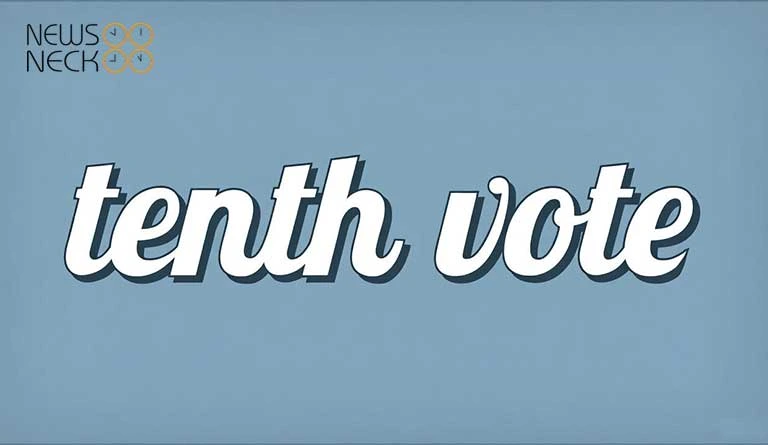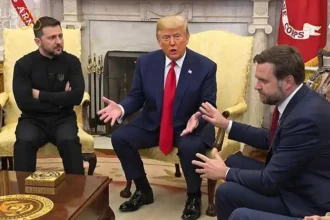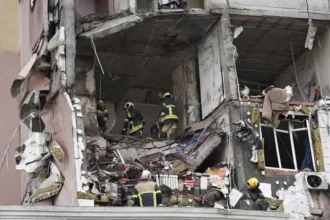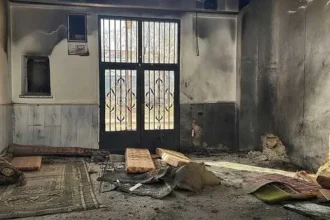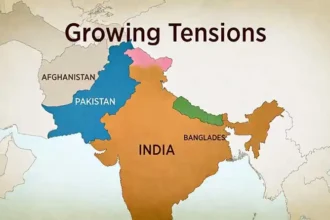A Stubborn Stalemate: What the Tenth Vote Reveals About a Broken Washington
There is a particular rhythm to a government shutdown in Washington. It begins with a flurry of dramatic speeches and urgent warnings. Then, it settles into a grinding, daily routine of failure. A cycle where the same actors take the same stage, recite the same lines, and achieve the same non-result. We are now on Day 16 of this performance, and the script has not changed.
On Thursday morning, the U.S. Senate prepared for its 10th vote on the same House-passed bill to reopen the government. The outcome, however, was a foregone conclusion. The measure had already failed on Tuesday and Wednesday, gaining no new support. It was destined to fail again, unable to secure the 60 votes needed to advance. This repetitive voting is not a sign of progress; it is a political theater, a public display of a profound and stubborn stalemate.
At its heart, the conflict is simple, yet seemingly unsolvable. Democrats are demanding an extension of health insurance tax credits as a condition for reopening the government. Republicans have refused, leading to a standoff where neither side appears willing to blink. While Republican leaders work to “peel off” support from across the aisle, their efforts have so far yielded nothing. The two parties are not negotiating; they are dug in, waiting for the other to surrender first.
A New Tactic and a Temporary Fix
Faced with this legislative paralysis, Republican leaders are trying a new approach. Later on Thursday, the Senate was expected to vote on advancing a full year-long appropriations bill to fund the Pentagon. The strategy, as explained by Senate Majority Leader John Thune, is to potentially attach other funding bills to this must-pass defense measure.
It is a clever tactical move, an attempt to break the monolithic government funding bill into smaller, more manageable pieces. But its success is entirely uncertain. Whether Democrats, who hold the votes needed to pass anything, will back this effort “remains to be seen.” It is a gamble, and one that could easily fail, leaving the government no closer to reopening than before.
Meanwhile, the human consequences of the shutdown are being managed with temporary patches. In a significant announcement, FBI Director Kash Patel said Wednesday that FBI agents would be paid during the shutdown, a move that alleviates some immediate financial anxiety for the crucial law enforcement agency.
More notably, the administration tapped unused research and development funds to cover the paychecks of members of the military. This ensured that troops received their pay, but as House Speaker Mike Johnson immediately warned, it is only a “temporary fix.” He stressed that troops risked missing their next paychecks at the end of the month if the shutdown continues. This creates a new, urgent deadline within the larger crisis, turning the well-being of service members into a ticking clock.
You Might Like it: U.S. Seizes $225M in Global Pig Butchering Crypto Scam:
The Real Cost of Political Theater
What does this tenth vote, this sixteenth day, actually tell us? It reveals a political system that has become adept at performing the act of governance without actually achieving it. The repeated votes are not a path to a solution; they are a substitute for one. They allow each side to demonstrate to its supporters that it is fighting the good fight, even as the government remains closed.
The temporary fixes for the FBI and the military, while welcome news for those affected, also highlight the ad-hoc and unstable nature of the situation. It suggests that the government is lurching from one short-term solution to another, unable to perform its most basic function: funding itself in a predictable and orderly manner.
The table below summarizes the key players and their entrenched positions:
| Player | Stated Position & Action | The Underlying Stalemate |
|---|---|---|
| Senate Republicans | Holding a 10th vote on a doomed bill; proposing a new tactic with a Pentagon funding bill. | Searching for a way to reopen government without conceding to Democratic demands. |
| Senate Democrats | Refusing to advance bills without an extension of health insurance tax credits. | Using their necessary votes as leverage to secure a key policy priority. |
| The Administration | Using accounting maneuvers to pay troops and the FBI. | Managing the symptoms of the shutdown without the power to cure the disease. |
This is the reality of the sixteenth day. It is a story of a political process that has broken down, replaced by a cycle of theatrical votes and temporary patches. The doors of the government remain closed, not because of a complex policy disagreement, but because of a simple failure of political will. The tenth vote is not a step toward a solution; it is merely a count of how many times our leaders have chosen to perform the same act, hoping for a different ending, while the nation waits for the curtain to finally fall.
Author: Yasir Khan
Date: 16 Oct, 2025
For More Updates, Visit Newsneck


